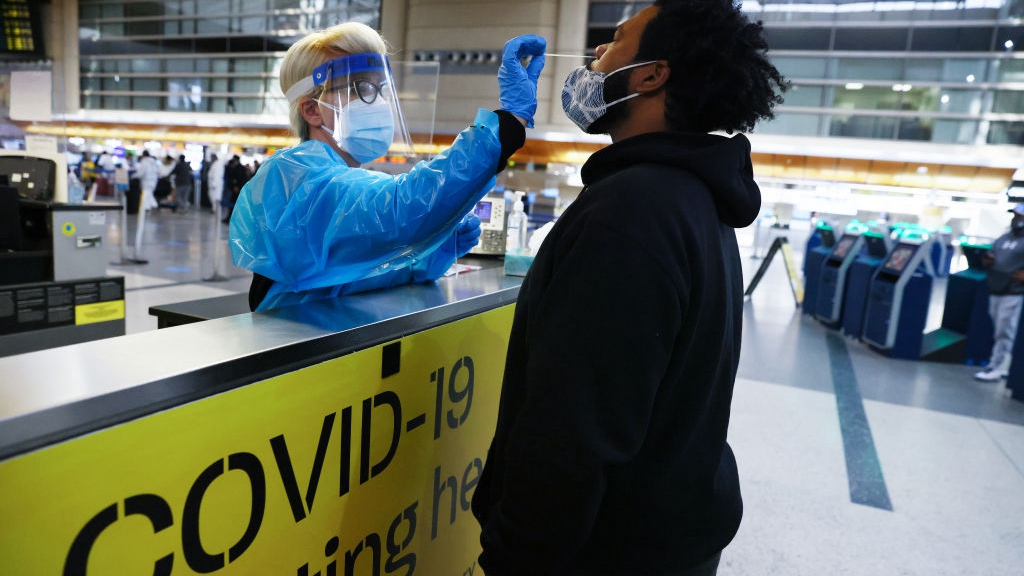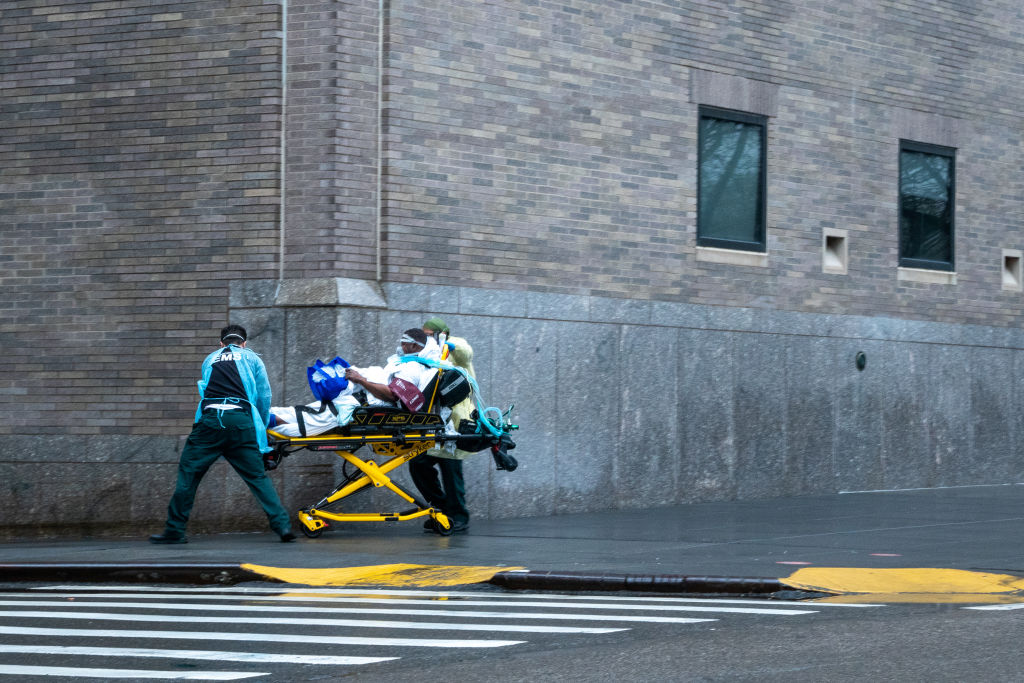
A man receives a nasal swab COVID-19 test at Los Angeles International Airport (LAX) amid a coronavirus surge in Southern California in Los Angeles, California, U.S., December 22, 2020. /Getty
A man receives a nasal swab COVID-19 test at Los Angeles International Airport (LAX) amid a coronavirus surge in Southern California in Los Angeles, California, U.S., December 22, 2020. /Getty
Editor's note: Andy Mok is a research fellow at the Center for China and Globalization. The article reflects the author's opinions and not necessarily the views of CGTN.
The world is in the throes of a COVID-19 resurgence, partially due to misinformation about vaccines and partially due to the latest outbreaks of a much more infectious variant, the Delta variant. And it applies particularly to the United States.
Yet, according to Bloomberg's recent COVID-19 resilience ranking, the best place to be in the time of this re-emerging public health crisis is the United States. Do you find this surprising? I certainly did and here's why.
Our World in Data is a user-friendly and authoritative online data resource put out by the University of Oxford with a wealth of statistics on COVID-19. Here's what their data showed (all statistics are calculated as a seven-day rolling average):
As of July 22, the U.S. experienced the second highest number of daily new confirmed COVID-19 cases per million people in the world – around 132. Its brother-in-arms, the UK, was at number one, with around 685. China, on the other hand, recorded only 0.03 new cases per million people.
Daily confirmed deaths per million also showed the United States holding the second highest position. In terms of the actual number of deaths, it was 250 per day. The UK ranked number one in daily deaths relative to the population while India topped the list for the highest number of daily deaths. Both are democracies that the United States loves to praise.
In that period, there were zero deaths from COVID-19 in China. So given these dismal and dismaying statistics, how could Bloomberg rank the United States as the best place to be in? I can think of two reasons. One of them is superficial and the other more profound and troubling.

EMS workers transport a patient on the side walk outside of Mount Sinai hospital in New York City, New York, U.S., April 13, 2020. /Getty
EMS workers transport a patient on the side walk outside of Mount Sinai hospital in New York City, New York, U.S., April 13, 2020. /Getty
First, the superficial one. The United States has an obsession, verging on the pathological, with being number one and it wants the title even if it lacks the qualifications. It would be admirable if it achieved its numero uno position by putting in hard work and sacrifice and actually doing something worthwhile. Instead, it chooses, perhaps unconsciously, to pretend it is the best and ignores the underlying reality.
In philosophical terms it has a problem of perspective. It sees what it wants to see and not what is actually there. Bloomberg, as an American publication, can easily fall into this trap. The COVID-19 ranking, however, raises a deeper and more troubling moral issue because it puts the United States at the top of the list by adding new criteria such as lockdown severity, flight capacity and vaccinated travel routes.
The addition of lockdown severity is especially pernicious and perverse as it up-ranks the United States for not taking effective measures to contain the spread of COVID-19. What it says, in effect, is that down is up and black is white.
This revised ranking sweeps under the rug the pandemic that is still exacting a very real cost in human lives by pretending that all is well. What this says about how it values human life is morally troubling.
In stark contrast, the recent outbreak originating in Nanjing in Jiangsu Province, east China, prompted a swift and resolute response from the Chinese authorities despite fewer reported cases than in the United States. China showed the value it places on human life and how a system that truly cares for its citizens responds to threats to their health and lives.
(If you want to contribute and have specific expertise, please contact us at opinions@cgtn.com.)

